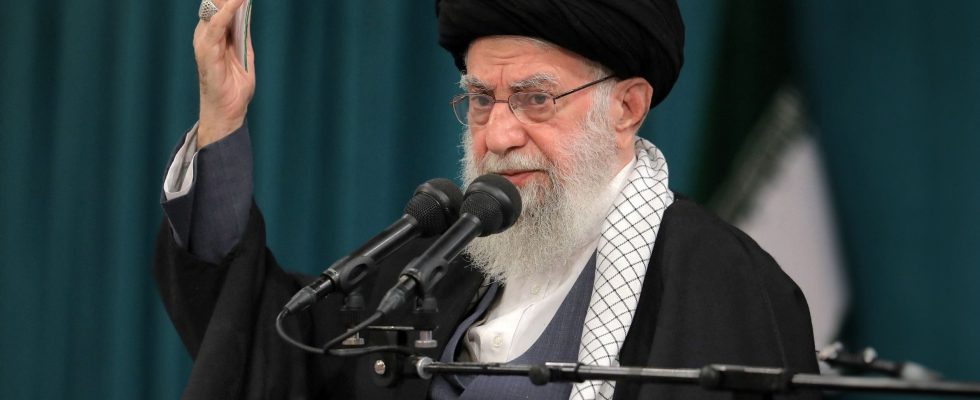On September 14, 2019, the Persian Gulf woke up to a double attack targeting Saudi Arabia: Aramco oil installations located in Abqaiq and Khurais in the east of the country were on fire, officially a target of the Yemeni group Ansar Allah, “the followers of God”, better known as “Houthis” in the West.
What surprised those familiar with the region was that attacks by these Shiite Islamists supported by Iran against Saudi installations had been almost weekly for several years, but until now they had caused little damage. Very quickly, we realized that Iran was in fact the real organizer of this attack, notably through its militias present in Iraq. The brigades of God’s party, known as Kataeb Hezbollahare, with the Popular Mobilization Units (Hachd al Chaabi), the main armed militias controlled by Iran which de facto crisscross the terrain in Iraq and put the country in a clear cut.
In addition to the Houthis in Yemen, who continue their terrorist enterprise every day against ships circulating in the Red Sea and militias in Iraq, Iran is also present militarily in Syria where thousands of Pasdarans or revolutionary guards, and Lebanese Hezbollah militiamen serve as auxiliaries to the regime’s forces and sow terror in the country.
In addition to these theaters of operation, Iran has been present militarily in a fourth state in the Middle East since the 1980s with Hezbollah, “the party of God”, the true manager of Lebanon, which took its population hostage and led the country to ruin. Iran uses Lebanon to destabilize Israel and the Palestinian territories, through regular bombings which occur most often when a political dialogue seems to become possible between Israel and the Arab world. Iran is also a major supplier of weapons and rockets to all Palestinian terrorist groups, including Islamic Jihad and Hamas.
In addition to the active and continuous destabilization of Iraq, Yemen, Syria, Lebanon, Israel and the Palestinian territories, Iran is also very active in Bahrain where it is the main financier and inspiration of the Shiite movements which sought to overthrow the monarchy in 2011 and continue to maintain a nauseating climate in certain sectors of the country and of course throughout the eastern province of Saudi Arabia, bordering Bahrain.
An interference now African
We also find Iran a little further away in Sudan, where the regime supplies, according to the Bloomberg agency, Mohajer 6 drones to the Sudanese armed forces of General al Burhan, fueling the civil war which pits it against the Forces of Rapid Support, the paramilitary militia of Mohamed Hamdan Dagalo, alias “Hemeti”, which has plunged the country into chaos for months. Mohajer 6 drones are also used by Ethiopian forces to bomb Amhara militias and are used intensively in Ukraine by Russia.
The rapprochement between the mullahs and the Sudanese regime, who have no longer maintained relations since 2016, dates from October 2023. Since then, Tehran has exerted a destabilizing action for the country, as in so many other world theaters, and alienated the belligerents. of a peaceful resolution of the conflict, by contributing to local chaos. The conflict also poses a risk of destabilization in neighboring Chad, whose Zaghawa ethnic group is present in both countries. Thus, beyond the unfortunately classic destabilization of the Middle East, which strives to actively ruin and rot all peace and prosperity in the region, it is now Africa and the Sahel which are suffering from interference. Iranian.
In the aftermath of the attack on Israel where 300 drones and missiles were launched from Iran and Yemen, voices in the West immediately rose to call for restraint, not to contribute to escalation the conflict, or even to begin a negotiation with the mullahs’ regime. Faced with these speeches, it never hurts to recall the facts about Iran.
We are not talking about a country that made a mistake by accident, we are talking about a regime which, knowingly and for decades, has practiced armed interference in more than five countries, finances terrorism wherever it can and maintains civil wars in Africa. We are talking about Putin’s main arms supplier in Russia. The astonishing leniency that Iran is subject to on the part of certain Western chancelleries must be confronted with the endless list of abuses committed and financed by this regime on a daily basis and which only get worse the more we pay attention to it. show our weakness.
*Arnaud Lacheret is a professor at Skema Business School. He notably published “Women are the future of the Gulf” (Ed. The Edge of Dawn, 2020)
.
